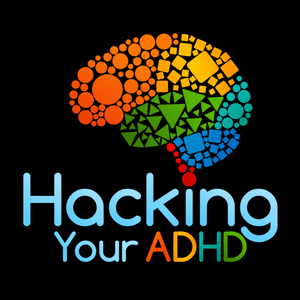Hey team!
This week I'm talking with Dani Donovan, a neurodivergent artist and designer whose ADHD comics have been shared all over the internet. Dani holds a BFA in Visual Communication and Design and is the creator of The Anti-Planner. She's spent years as an advocate for neurodivergence, using her background in design to simplify those complicated, invisible daily struggles we all face. In our conversation today, we're diving into why traditional planners often feel like they never work how we want them to and how we can transition into a "toolbox" mindset instead. We explore the concept of "anti-shame" tactics and how to stop using mean-spirited self-motivation. Dani shares some of her favorite hacks for the mundane stuff, like an "Inbox Sprint" for tackling email debt and some unconventional strategies, including how she uses "worst drafts" and even Magic: The Gathering packs to keep herself moving.
Check Out the Anti-Planner: https://www.anti-planner.com/
If you'd life to follow along on the show notes page you can find that at HackingYourADHD.com/277
YouTube: https://tinyurl.com/y835cnrk
Patreon: https://www.patreon.com/HackingYourADHD
This Episode's Top Tips
We often beat ourselves up for "failing" to use a planner reliably after three months, but the reality is that our brains stop responding to the same stimuli once the novelty wears off. Instead of trying to find the one system you'll use forever, you can try building a "toolbox" of multiple strategies.
Executive dysfunction isn't a monolith; it's a collection of specific emotional roadblocks like being intimidated, over-committed, or paralyzed by perfectionism. Approaching every task with a standard to-do list is like trying to use a hammer on a screw; it's the wrong tool for the specific resistance you're facing. By identifying the specific flavor of your resistance first, you can choose a tool designed to dismantle that exact barrier.
Many of us have spent a lifetime using "mean" self-talk as a primary motivator because getting in trouble was the only thing that worked in the past. However, shame is a paralyzing emotion that actually increases avoidance. Shifting to an objective, "engineering" mindset allows you to view a failure not as a character flaw, but as a data point . Asking "Why did this fail?" instead of "Why am I like this?" allows you to troubleshoot the system rather than blaming the person.


